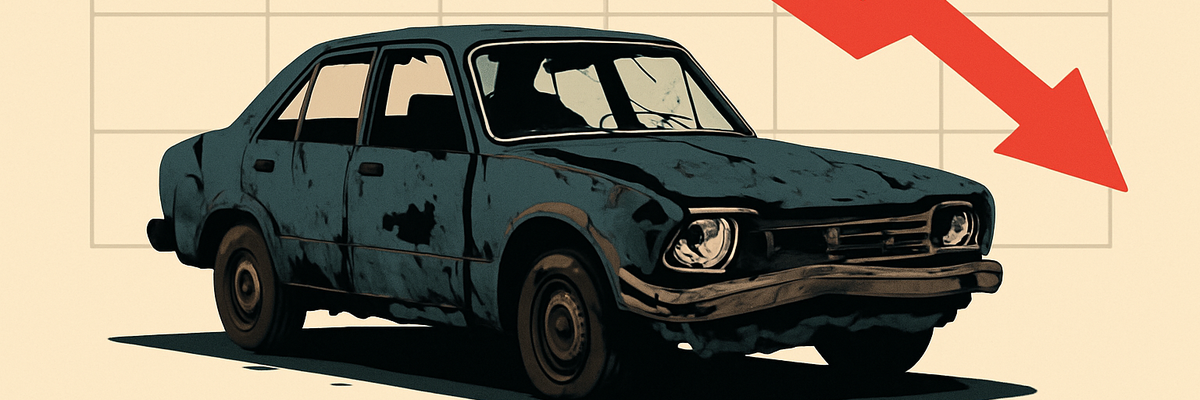How Long Should You Keep a Car to Get the Most for Your Money?

There's no single "perfect" time to trade in a car.
As someone who's traded in a few cars, I can confirm that it's all (mostly) about priorities: whether you care more about maximizing resale value, avoiding repair costs, or squeezing every last mile out of it. It also depends on how many miles your ride's got on it and how well you've taken care of it.
But if your goal's to get the most money for your car, there are a few clear windows where it might be smart to sell. Here's what to know.
Depreciation hits fast, then slows
New cars lose value quickly -- most drop about 30% over the first two years, and continue to depreciate 8%-12% each year after that, according to Kelley Blue Book.
For that reason, most experts suggest keeping a car at least three years before selling or trading it in. By then, the worst depreciation is behind you, but your car is still relatively new, desirable, and likely under 60,000 miles.
That's important because many warranties expire around the 60,000-mile mark, and buyers tend to pay less once cars cross that threshold. To get the most bang for your buck, sell before you reach that number.
If you're getting ready to sell or trade in your car, it's also a great time to re-evaluate your car insurance. Rates can change as your vehicle's value drops, and you might be overpaying for coverage you no longer need. Check out our free tool to compare rates from the top insurance companies -- you could save hundreds of dollars per year.
Sell before major repairs
After a handful of years, many vehicles begin needing major maintenance -- new brakes, tires, suspension work, or costly engine repairs. If you wait too long, resale value may keep dropping while repair bills pile up.
The sweet spot to sell is often, again, between three and six years of ownership. That's when the car still has decent value and hasn't become a money pit.
One exception: if your car is still running smoothly, fully paid off, and cheap to maintain, it may make sense to keep it longer and avoid a new car payment. But once repairs start getting expensive, or you're no longer covered by a warranty, it's worth re-evaluating.
Timing the market can help
The time of year can also impact how much you get for your car. Spring and early summer are typically strong seasons for used car sales.
On the flip side, prices may drop when dealerships are making room for new models, usually in the fall. Selling just before the new model year arrives can help you avoid that dip in value.
If you're trading your car in to a dealer, consider doing it near the end of the month or quarter. Dealerships often have sales targets and may be more motivated to offer a competitive trade-in price.
How you sell matters
You'll usually get more money by selling your car privately rather than trading it in. But that comes with more effort: listing the car, meeting buyers, and handling paperwork.
A dealer trade-in is faster and simpler, especially if you're buying another car from the same place. If you're short on time or patience, the convenience might be worth the lower payout.
Before selling, make small fixes, clean the car, and gather all maintenance records. These steps can make a noticeable difference in resale value.
Want to save on car insurance while you're at it? Check out this free tool to compare rates from top providers.
Our Research Expert
We're firm believers in the Golden Rule, which is why editorial opinions are ours alone and have not been previously reviewed, approved, or endorsed by included advertisers. Motley Fool Money does not cover all offers on the market. Motley Fool Money is 100% owned and operated by The Motley Fool. Our knowledgeable team of personal finance editors and analysts are employed by The Motley Fool and held to the same set of publishing standards and editorial integrity while maintaining professional separation from the analysts and editors on other Motley Fool brands. Terms may apply to offers listed on this page.


